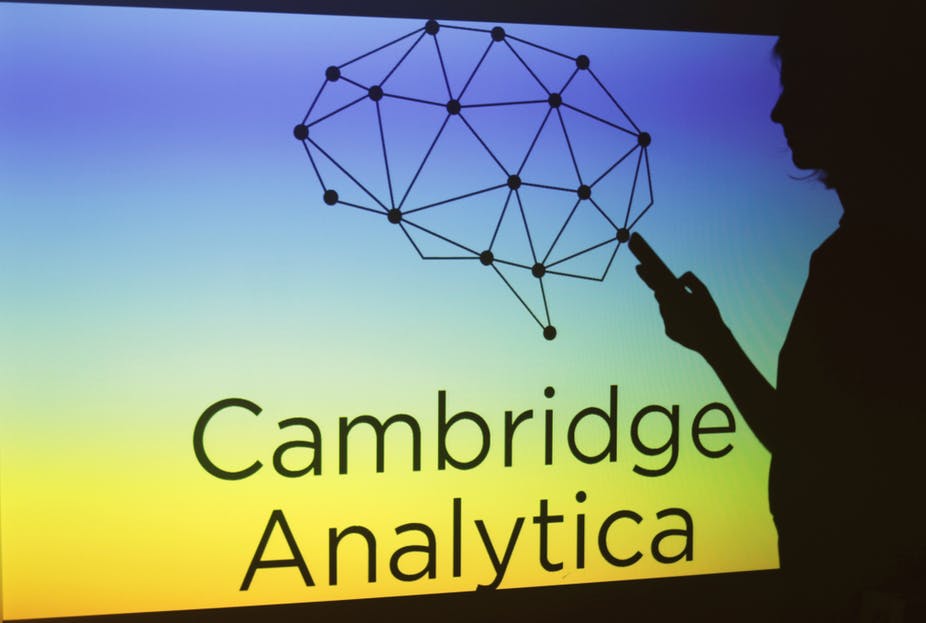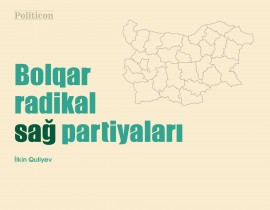Politicon.co
Cambridge Analytica Scandal or The Dark Side of Data Analytics

Introduction
Knowledge has always placed a significant role in the advancement of the civilization and its importance has been highlighted in different languages throughout the centuries. Knowledge was considered as power even in the Dark Ages when the violence and physical force were the daily routines for most people. Access to it was not so easy either for thousands of years and only a small percentage of the population could obtain and harvest it.
Information can be considered as a narrower term compared to the knowledge as according to Merriam-Webster, its first use, dating back to the 14th century, described it as “knowledge obtained from investigation, study, or instruction” And it was not used as frequently as the term “knowledge” until the 20th century although I would consider them as synonyms in the pre-1900 period context.
However, the importance of the information has surged during the last century, especially after the advancement in the technological sphere. Even a new “ism” was coined to describe the revolutionary changes coming with the technological leap. As mentioned by Himanen in his famous book, “informationalism as a technological paradigm, is replacing industrialism as the dominant matrix of twenty-first century societies” (Himanen, 2001: 157). The dominance of informationalism is explained by “its superior performance in the accumulation of wealth and power” (Himanen, 2001: 157). And this is definitely true as when you look at the list of the wealthiest persons in the world you can see the names such as Bill Gates, Larry Ellison, and Mark Zuckerberg on the top ten. Information has even surpassed the price of the oil, a long-term champion commodity associated with the wealth for most of the nations, the fact of which shows that it is dominant and crucial for today’s world economy and politics.
Coming from this, would it not be logical to get access to more information in order to get wealthy and powerful? I think the question is yes and the Cambridge Analytica scandal is a great example of the sinister operation to reach these mentioned goals. This case also shows the influence of the information technologies and social media on our choices, including political ones. Besides, this case also showed the possibility of the use of big data and data analytics to manipulate human behaviour.
The genius business model of Cambridge Analytica, apart from the amazement, raises also questions: how will we stop people from using the information for unethical and sometimes illegal purposes in the future? And how will we even stand against the corporations/companies which hold terabytes of information about us and do not guarantee to use it for good purposes or sometimes are not even aware of its bad consequences?
The chronicle of a hack foretold
It should be noted in advance that the term “hack” mentioned in the heading has a negative connotation as the actions of Cambridge Analytica can hardly be justified. However, it did not come as a big surprise for some experts as the privacy concerns related to Facebook were evident for a long time and were occasionally raised by privacy rights defenders. And the Cambridge Analytica scandal was just the confirmation of the long-time suspicions towards Facebook and its privacy-handling policies.
***
Everything started from 2010 when Facebook launched Open Graph Api for third-party apps which enabled external developers to get access to a huge amount of personal data of Facebook users. This data could range from user’s name to relationship news and political preferences (Meredith, 2018). Initially, the CEO of Facebook assured everyone that the users’ data will not be compromised under any circumstances. But apparently Mr. Zuckerberg was either too naive or dishonest with the Facebook community as the events developed.
In 2013, an app called “Thisisyourdigitallife” and created by the Cambridge academic Aleksandr Kogan and his company Global Science Research (“GCR”) offered a “psychological profile test” to the Facebook users and almost more than 300,000 people were estimated to have been paid to take that test. Not being a simple test app, “Thisisyourdigitallife” also collected data from the friends of those Facebook users taking the test and it is not hard to estimate that more than millions of Facebook profiles were affected as a result. (Meredith, 2018)
Although Facebook later brought some limitations to access the users’ data, those rules were not retroactive and GCR had already managed to harvest millions of users’ data in its hand. Eventually GCR sold this data to Cambridge Analytica (“CAL”) and this was done without the consent of the respondents participating in the test. (grcsolutions.com, 2018)
One of the first uses of the data analytics as a political tool/propaganda by CAL actually happened in 2013 when the ruling party in Trinidad and Tobago contacted SCL, the parent company of CAL, to help them to develop a micro-targeting program to win the elections (Cadwalladr, 2017). But the big shot came a year later when CAL provided the Political-Action-Committee of John Bolton, a close person to Donald Trump and later his security adviser, with the early versions of Facebook-obtained profiles which lead to the first large-scale use of the technology in American elections. (Confessore, 2018)
Interestingly, CAL not only worked with the Trump election team, but also with his rival Ted Cruz from the Republican party. But the cooperation with the real estate mogul’s team turned out to be more successful. One of the most effective video campaigns during the presidential race against the Democratic candidate Hillary Clinton, “Defeat Crooked Hillary”, was masterminded by CAL based on the micro-targeting of the indecisive voters. CAL was also helping Trump’s team to create targeted Facebook ads directed to the above-mentioned electorate. (Meredith, 2018)
It is also believed that CAL indirectly helped the Leave campaign in the British referendum. Besides, its area of work spanned to Russia, Lithuania, Iran, Ukraine, and Moldova. There are also thoughts that the Russians might be behind the CAL by helping the company to make a deal with Trump's campaign team. (Cadwallandr, 2017)
But soon CAL was exposed thanks to the whistleblower named Christopher Wylie. The revelations by him prompted several governments to initiate investigations and proceedings on the political interference and privacy breaches. Zuckerberg was obviously under the spotlight but apparently he managed to escape from the liability although temporarily Facebook’s market values got a hit.
The CAL filed for bankruptcy and disappeared from the scenes quite quickly although the resonance it created will probably last longer.
The impact of the Cambridge Analytica case
Probably none of the great thinkers of the pre-technology era would imagine such a heavy dependence of the homo sapiens on technologies and gadgets. It might sound futuristic but the next possible novelty might be the chips embedded in a human's brain allowing him/her to use mobile devices without a need for any physical devices and this would probably confirm the end of the homo sapiens species.
Another noticeable phenomenon is that the rate of lively face-to-face communication is decreasing whereas the tendency to use social media and communicate with other humans through those channels is increasing. Basically, we do not abandon the idea of being “social animals”, we are just transferring sociability to the virtual space. Eventually, humans spend most of their lives in their virtual realm rather than the physical world. Simply, we are becoming more attached to the virtual world, including social media channels existing there.
This trend also makes marketers, advertisers, and even politicians divert their attention to the Internet and social media as a huge number of potential customer voters are concentrated there. From the perspective of the politicians, Facebook has also a special place as its community has probably the largest share of middle-age population who are more interested in politics compared to other age groups. Facebook even sometimes reminds of the political battlefield as it is the assembly point of the different conflicting political views and agendas.
The advance of knowledge in big data and the rising popularity of data analytics in the recent years is mostly linked with the current phenomenon as they deal with one of the expensive commodities which might bring fortunes and power. Apart from this, social engineering, psychological techniques, profiling, and micro-targeting also play an important role in the manipulation process of the masses in the technology era. CAL cunningly used these methods and tools and eventually conducted the computational propaganda.
***
As mentioned before, the Internet and social media are changing the way traditional propaganda is delivered to people. The removal of geographical borders, the existence of anonymity obscuring the sources and preventing the attempts to find the source of the news, and automation can make almost everyone with a computer in their hands a source of misinformation.(Berghel, 2018: vol. 51, no. 5, pp. 84-89) The term computational propaganda might sound quite unfamiliar to most people, which is also worrying. You cannot fight with the enemy you do not know and most of the people have the potential to be exposed to the effects of this novel propaganda method.
Gullibility and selective thinking are also among the psychological factors which helped the CAL easily apply their manipulation strategies. These are the factors which make us susceptible to malicious things circulating on the Internet and feed the scammers and propagandists. The tendency to believe in things easily, probably resulted in the fact that 50,000 people took an online Facebook personality test because of the “claimed benefits” of the app created by Kogan’s team. (Berghel, 2018: 84-89)
It should be also mentioned that the main concern regarding this case should not be mostly about the political manipulation and election meddling as such things are not unfamiliar to the affected countries, including the U.S. Throughout the American history the public has witnessed several incidents, even greater than the 2016 presidential campaign. But another worrisome point sometimes overlooked is the breach of privacy rights. Facebook until recent years left its users without any proper protection and the idea to introduce the tools, such as Facebook API Graph was a terrible idea from the point of the privacy. Besides, every website with the Facebook logo is related to Facebook, “allowing for tracking of non-members as well as members who might not have opted in for the service” (Isaak and Hanna, 2018: 56-59). With a broad range of available personal information, it is quite easy to micro-target individuals and manipulate their behaviour and actions quite easily. (Isaak and Hanna, 2018: 56-59)
Facebook, together with other tech behemoths such as Google, Microsoft have all the potential to turn our lives into the “Truman show” where all of our actions are controlled and interrupted by numerous advertisements. As brilliantly described, “Facebook’s 2 billion users aren’t a community in any meaningful sense of the term - they are, collectively, the product sold” (Berghel, 2018: 84-89). Therefore, the great emphasis should be put on the proper handling of the user’s data held by such companies together with the inadmissibility of the unethical use of data analytics.
Conclusion
In a nutshell, the CAL scandal should be considered as one of the showcases of the impact of the emerging technologies on every aspect of our lives. This case is not relevant just because of the public attention it drew or the effect on the election outcomes in the countries, such as the U.S. or Great Britain, as the election manipulation is not something extraordinary even in the Western democracies. The worrying point is that the CAL scandal showed the relevance of the big data and to some extent data analytics in politics and political campaigning (Ritcherich, 2018). The illegal, unethical, yet the brilliantly devised techniques deployed by the CAL also showed that the data are not neutral and can be used by one group against another one. (Ritcherich, 2018)
Every great technology/innovation also brings a set of drawbacks with itself and it should not be welcomed with the utmost optimism. The frequent use of the technological equipment/techniques by the corrupted/authoritarian regimes clearly indicate that the companies exporting such services/products should think twice and act ethically. The CAL case is another proof how the unethical use of the technology can eventually jeopardize our democracies and freedoms.
References:
1. Merriam-webster.com
https://www.merriam-webster.com/dictionary/information
2. Pekka Himanen, “The Hacker Ethic and Spirit of the Information Age” (2001)
3. “Privacy Commissioner to investigate Facebook/Cambridge Analytica data breach fallout” (2018), available at
https://grcsolutions.com.au/privacy-commissioner-investigate-facebook-cambr idge-analytica-data-breach-fallout/
4. Carole Cadwalladr, “The great British Brexit robbery: how our democracy was hijacked” (2017), available at
https://www.theguardian.com/technology/2017/may/07/the-great-british-brexit
-robbery-hijacked-democracy
5. Nicholas Confessore, “Cambridge Analytica and Facebook: The Scandal and the Fallout so far” (2018), available at https://www.nytimes.com/2018/04/04/us/politics/cambridge-analytica-scandal
-fallout.html
6. Sam Meredith, “Facebook-Cambridge Analytica: A timeline of the data hijacking scandal” (2018), available at https://www.cnbc.com/2018/04/10/facebook-cambridge-analytica-a-timeline-o f-the-data-hijacking-scandal.html
7. H. Berghel, "Malice Domestic: The Cambridge Analytica Dystopia," in Computer, vol. 51, no. 5, pp. 84-89, May 2018, doi: 10.1109/MC.2018.2381135.
8. J. Isaak and M. J. Hanna, "User Data Privacy: Facebook, Cambridge
Analytica, and Privacy Protection," in Computer, vol. 51, no. 8, pp. 56-59, August 2018, doi: 10.1109/MC.2018.3191268.
9. Annika Richterich. (2018). How Data-Driven Research Fuelled the Cambridge Analytica Controversy. Partecipazione E Conflitto, 11(2), 528-543.
About the author:
Elvin Abbasli, a graduate from Baku State University and Estonian School of Diplomacy, currently resides in Estonia. Has interests in International Relations, Geopolitics, History and IT.
![]()
- TOPICS :
- Information Technologies
- REGIONS :
- North America and Carribean







jpg-1599133320.jpg)
